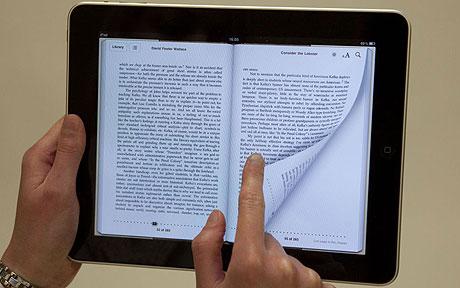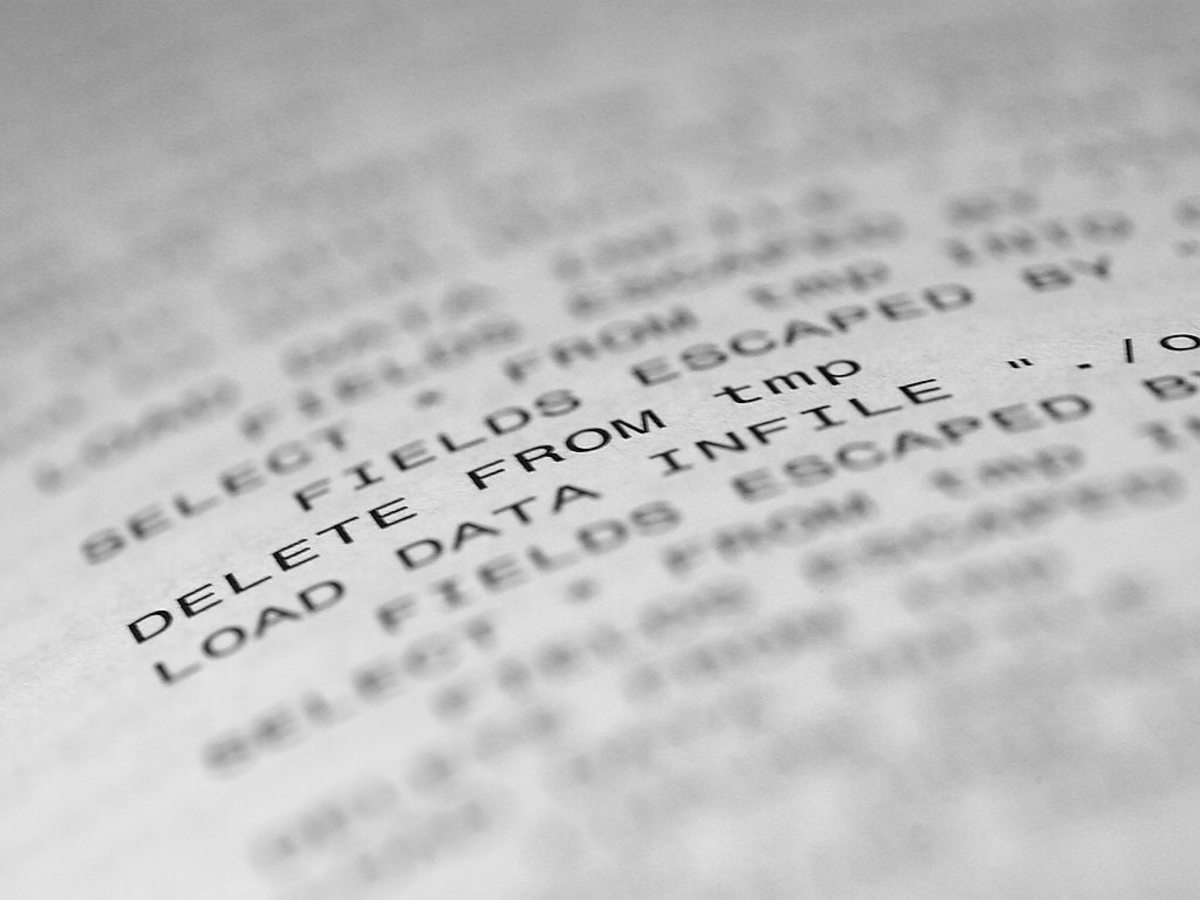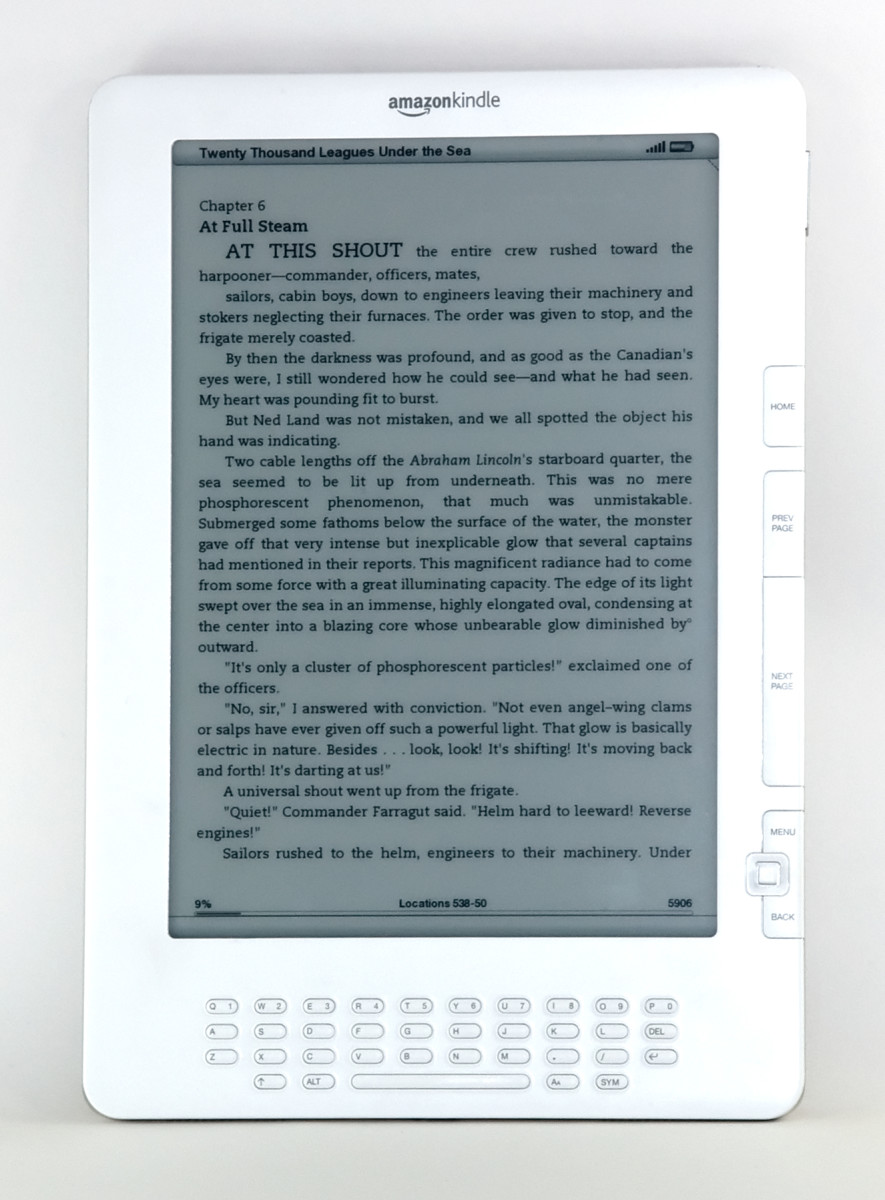Paper Books vs Electronic Books

Many people have announced that traditional paper books are dying off and that it will only be a matter of time before we will all be reading e-books. At first I embraced this announcement as I am an iPad 2 owner, and have downloaded loads of free books for iBook and other book applications. I am a fan of the classics so most of those are available for free. I've read a few books and have found that I didn't enjoy the e-book experience as much as I thought I would.
One thing that bothers me is not really knowing how far I am into a book. Sure, I know what page I'm on of however many pages, but it's not like reading a traditional book where you can actually see where you are at.
Another thing that has bothered me is that my eyes get strained and tired by reading off my iPad. I've read up a lot on this and have seen a variety of opinions as to whether reading books on an LCD hurt your eyes more than traditional books or e-ink. I must note that I've never read e-ink except for a few minutes at the store, so cannot really compare it to reading off of paper or an LCD screen. One thing I do know if that reading a book on an LCD screen is a lot more straining on my eyes than paper books. I've downloaded lots of books that I've wanted to read for a long time, but find myself turning to traditional books more and more.
I don't know if reading will turn to electronic devices in a big way in the future and make traditional books totally obsolete, but I doubt it. There is still something nice about going into a nice library or bookstore than you can't get by downloading a file. I have a feeling that traditional books will be around for a long time.
Another thing is that a book is a book, unlike electronic reading devices that can be thrown aside for the latest and newest version that will inevitable come along every year claiming to be a better reading experience. Also, buying many e-books is not much cheaper than buying a hard copy, especially for new releases.
Reading is a very personal thing, and everyone does it differently, so there is no point in claiming that e-books will totally displace traditional ones, nor do I think should they. Even though I can adjust the backlight and the size of the letters in iBooks, I still find it straining for my eyes. Also, despite the iPad 2 being lightweight, it still gets tiring holding up for longer periods of time.
I have been somewhat guilty of jumping on the e-reader bandwagon and have realized that I don't enjoy it as much as reading traditional paper books. It's not bad to have these books downloaded on iBook though, just for some shorter reading now and again when taking a paper book with me wouldn't be feasible. Using it on a plane or at a cafe is handy when there is nothing else to read. However, as a main source of reading material I still prefer a normal book.
It's great that you can download 2,000 or however many books to your device, but how many will you actually read?





